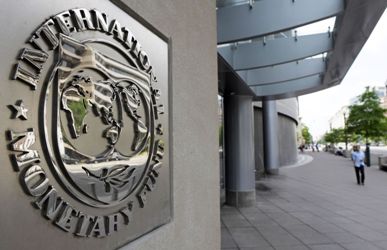IMF urges Sudan to take bitter fiscal pills as the economy keeps shrinking
March 11, 2020 (WASHINGTON) – The International Monetary Fund (IMF) warned that the Sudanese economy would continue its downward trajectory unless the government undertakes crucial fiscal reforms.

The IMF also called on Khartoum to take on the fuel subsidies and gradually lift them while at the same time increasing spending on the vulnerable sections of the society.
“Total (explicit and implicit) fuel subsidies rose by an estimated 7½ percentage points to 11¾ per cent of GDP over 2018–19 because of higher international oil prices, exchange rate depreciation, and increased fuel consumption”.
The Sudanese government backed away from lifting fuel subsidies in its 2020 budget following the uproar it created after initially including it and said it will put it up for discussion in a national economic conference slated for this month.
The Washington-based international financial body also stressed that the foreign exchange rate system remains “highly distorted” & recommended liberalizing it.
“Directors emphasized that gradual exchange rate liberalization is critical for eliminating the distortions that hamper investment and growth. It would bolster competitiveness and transparency, eliminate multiple currency practices and associated distortions, reduce rent-seeking, strengthen central bank independence and boost fiscal revenues,” the IMF said.
The Sudanese pound has plummeted against the US dollar in the black market, which the IMF says accounts for 80% of all transactions, reaching three digits that it is almost twice the official rate. This is adding to the inflationary woes facing Sudanese consumers.
The East African nation is plagued by long queues in fuel stations & bakeries as shortages mount. Most recently daily electricity outages have become common.
The IMF acknowledged that public tolerance for economic policy reforms sought by the government “has been eroded by economic hardship”.
“[W]hile the government enjoys substantial goodwill the window of opportunity for reforms is likely to be limited”.
The IMF also appeared critical of the underlying economic assumptions of the 2020 budget.
“Revenue projections also appear optimistic, and a large hole in public finances will emerge if they are not realized, requiring additional measures to ensure fiscal consolidation…..optimistic oil revenue projections that would require sharp increases in oil production to materialize.”.
Moreover, the report raised questions about a $2 billion “non-transparent” contribution to the 2020 budget from the security sector owned companies in reference to local defence industrial firms.
“The large receipt from the security sector raises significant questions, including on oversight of the sector, and how much donor financing is really needed given the apparently large stock of wealth in the security sector”.
“Overall, the headline budget deficit is projected to decline to 2¼ per cent of GDP, while including implicit subsidies would raise the deficit to 7¼ per cent of GDP. However, if the expected large receipts fail to materialize the deficit could rise up to 14¾ per cent of GDP”.
As far the major indicators, the IMF projected Sudan GDP to shrink -2.5% in 2019, -1.2% in 2020, -0.6% in 2021 before growing to 0.4% in 2022. Inflation rates will be 51.3%, 66.4%, 74.8% & 80.2% respectively.
Sudan’s foreign reserves are forecasted to be at $1.7 billion in 2019 dropping slightly to $1.5 billion this year. In both cases, the levels are significantly less than the recommended threshold amount needed to cover 3 months of imports.
The IMF also raised the alarm on the fragility of the Sudanese banking sector saying that non-performing loans are underestimated and that many banks remain undercapitalized.
It also noted that hefty US sanctions imposed in 2014 against international banks resulted in a “sharp decline in correspondent banking lines with Sudanese banks”.
The IMF also emphasized that concerns regarding controls in Sudanese banks as it relates to money laundering & terrorism financing coupled with Sudan’s inclusion on the list of states that sponsor terrorism (SST) are also keeping international banks away.
The SST is also a factor that prevents debt relief for Sudan and protracted debt arrears prevent financing by multilateral financial institutions such as the IMF & world bank.
Sudan’s external debt is estimated to be at $57.5 billion in 2020 which the IMF called “unsustainable”.
The IMF urged Sudan to “adopt a prudent debt strategy that minimizes non-concessional borrowing and avoids selective debt servicing of bilateral lenders, to avoid complicating debt relief efforts”.
(ST)
